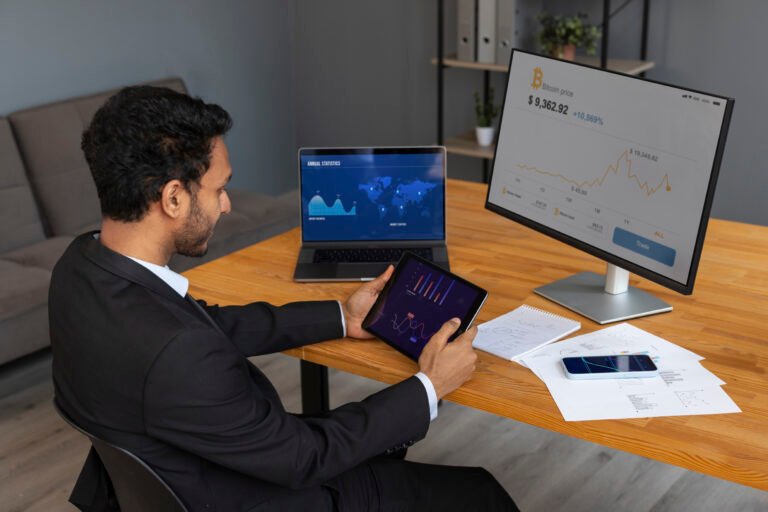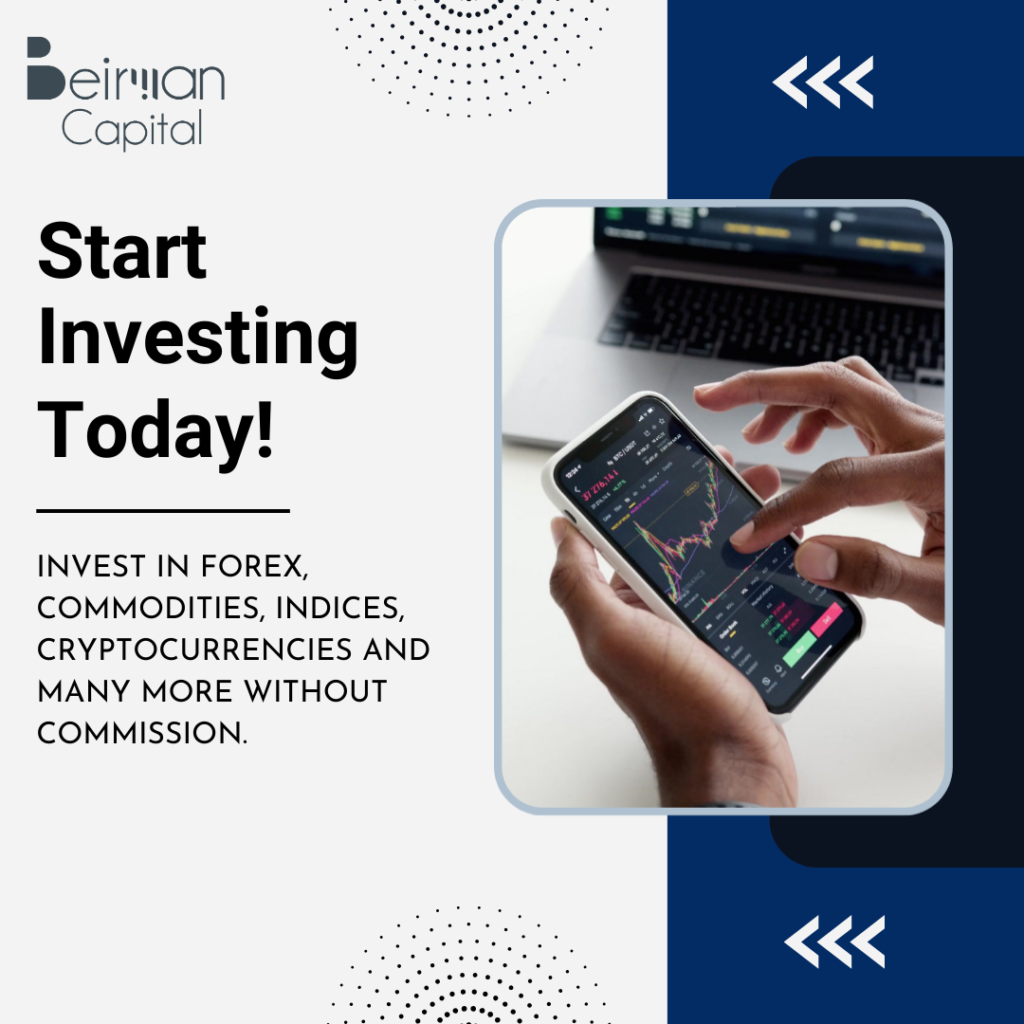How to Trade Commodities
Commodity trading is a process of exchanging raw goods to make profits. Discover the procedure of how to trade commodities, their types, strategy & ways.
Table of Contents
The scope of trading is increasing these days due to massive returns. You may have heard of foreign exchange or stock trading, but do you know you can also trade in raw materials, natural resources, and many other commodities? Let us discuss the concept of commodity trading and the procedure of how to trade commodities.
What is Commodity Trading?
Commodity is a word used for unprocessed goods, raw materials, or agricultural products that people consume or use in their daily lives. Buyers and sellers come together to exchange goods.
Commodity trading is a process of buying and selling these raw goods in order to take advantage of their price fluctuation.
The price of commodities changes over time based on their demand and supply, environmental, technological, political, and natural factors.
Commodity trading is a way of taking advantage of the supply and demand dynamics and making a profit from their difference.
Example
Let us understand the concept of how to trade commodities with an example for a better understanding.
A trader has analyzed the market conditions of wheat and found out that the price of rice may rise in the future due to weather conditions.
So, the trader has bought 1000 kg of rice at the rate of 1 USD per Kg. His prediction went right, and after a week, the price reached 1.5 USD per kg.
Now, the trader has decided to sell rice. In this case, he has made a profit of 500 USD (1000*1.5-1000*1).
That’s how trading in commodities takes place. However, if the trader’s prediction goes wrong, then the chances of losses are also there.
How to Trade in Commodities for Beginners
Trading commodities is not as simple as it looks; making money in the commodity, forex or any other financial market requires knowledge and skills.
If you are wondering how to become a commodity trader, then let us discuss its step-by-step procedure. It will help you trade in the right commodity at the right time and maximize your returns in the market.
Best Commodity to Trade in Forex
The foremost and most crucial step to start trading in commodities is to select a commodity to trade in.
A trader should be well-versed with the market conditions and different factors affecting the demand and supply of that particular commodity. Here are the types of commodities one can start trading in.
Metals
The most popular commodity products to trade in with huge returns are metal or comex products like gold, silver, platinum, palladium, copper, aluminum, and many others.
The limited supply and huge demand for these precious metals in different industries result in significant price movement of the metal price.
Traders take advantage of these price fluctuations and make a good amount. Gold is amongst the most traded commodities and has a negative correlation with US Dollars that contributes to its popularity.
Energy
Energy products like oil, gasoline, and natural gas are also popular options for trading in commodities for beginners. These products have managed to maintain their value and stay in demand throughout history, making them a popular choice for traders.
Agriculture Products
Trading in agriculture products like wheat, rice, sugar, cotton, soybean, coffee, or livestock like cattle hogs are also popular amongst traders. These products are always in demand; however, the supply change due to weather or environmental conditions causes considerable changes in their price.
So, there are a number of options to trade in commodities. A trader should select the right commodity based on factors like interest, capital, risk, time frame, etc.

Learn What Moves the Commodity Market
Well, like any other trading, commodity trading is based on the concept of speculating price movements. These predictions are made after studying certain factors; let’s have a look at these factors.
Economic Events
Fundamental analysis factors like economic reports, policies, and news have a significant impact on commodity trading, and these may change the entire market scenario.
Traders watch these events to make trade decisions. Suppose the market of alternative energy is all set to expand according to a report. In this case, a trader can invest in wind power or solar power products.
Geopolitical Events
The commodity market is highly affected by political events like war, diplomatic relations, elections, speeches, policy changes, etc, that directly or indirectly influence commodity exchange.
For example, the present Ukraine and Russia war has affected the price of commodities like sunflower oils, wheat, corn, etc, so traders can watch this event and buy and sell accordingly.
Supply and Demand Dynamics
One of the major factors to monitor is the supply and demand chain. Higher supply than demand of the commodity results in a fall in value, while lower supply than demand results in a rise in price.
Factors like the season, weather, transportation, storage, etc, impact these dynamics. Suppose a cheaper alternative of aluminum came into existence with the same features; in this case, the price of the metal is expected to fall.
Other Financial Markets
Many commodities have positive or negative correlations with financial markets like stocks, forex, etc. The dynamic of other markets may affect related commodity trading.
For example, gold has a negative correlation with USD. Suppose, according to an economic report, the value of US Dollars is expected to fall. In this case, there is an opportunity to buy the XAU/USD pair.
Identify the Way to Trade in Commodities
Another crucial step of how to trade commodities for beginners is to select a way or style. There are a number of ways to trade commodities; let us discuss their key features.
Commodity CFD Trading: Contract for difference is a popular way to trade in commodities without physically owning the underlying asset.
Under CFD trading, traders analyze the market and make buying or selling decisions accordingly. If the prediction goes right, they make a profit and suffer a loss if the prediction goes wrong.
Commodity CFD Trading
Contract for difference is a popular way to trade in commodities without physically owning the underlying asset.
Under CFD trading, traders analyze the market and make buying or selling decisions accordingly. If the prediction goes right, they make a profit and suffer a loss if the prediction goes wrong.
Commodity Stocks
Exchange Traded Funds or ETFs are financial instruments to trade in a basket of securities, commodities, stocks, or bonds. ETFs are amongst the best options to trade in a range of instruments with a single investment.
Commodity ETFs
Exchange Traded Funds or ETFs are financial instruments to trade in a basket of securities, commodities, stocks, or bonds. ETFs are amongst the best options to trade in a range of instruments with a single investment.
Determine the Commodity Trading Strategy
One of the most crucial elements you need to start trading is a solid plan. Like forex or any other market, commodity trading requires proper planning.
A trading strategy describes how, when, and where to place a trade and take maximum advantage of opportunities. It helps in identifying crucial trade points like capital, risk-reward ratio, leverage, etc.
In addition, a range of strategies like scalping, day trading, algorithm trading, copy trading, swing, position, and price action are there to choose from based on your time frame and other factors.
Open the Account with a Reputed Broker
One of the most crucial steps of how to trade commodities is selecting a reputable broker. There are multiple factors to look for while choosing a broker, like registration, minimum balance, spreads or trading fees, leverage, security precautions, demo account facility, education resources, and many others.
You can find many options for brokers to start your trading journey; however, if you look for reliable brokers, then the options are limited.
Beirman Capitals is amongst the renowned brokers offering a range of commodities to trade in. Try and test our services and open a demo account with us to get practical experience in trading.
Fund your Account and Start Trading
Once you are done with broker selection and demo account testing, it’s time to start your commodity trading expedition with real money.
For placing real trade and making real profit, you need to fund your account. Identify your trading capital based on factors like risk-taking ability and confidence; remember, only trade with the amount you can afford to lose.
A Novice trader should start trading with a small portion of the capital to avoid huge and unpredictable losses. In order to place a trade effectively, a trader should monitor the market conditions, news, analysis, and trading signals to place trade effectively. Always set stop loss and take profit level for risk management.
Wrapping Up
The commodity market offers a great potential for money-making with a range of opportunities and instruments. However, trading in commodities or any other financial instrument requires knowledge, skills, experience, discipline, and patience.
We have understood the procedure of how to trade commodities. A novice trader should follow every step of commodity trading to ensure a smooth trading journey.
Also, before starting trading with real money, get yourself well versed with the commodity market and factors affecting your buying and selling decision to make maximum money in the market.
FAQ
1. What does a commodity trader do?
A commodity trader buys and sells commodities like agricultural products, energy, & precious metals for clients.They also advise clients on market trends & manage risk.
2. What is an example of a commodity trade?
An example of a commodity trade would be buying or selling a set amount of crude oil at a preset price for delivery at a future date, essentially placing a futures contract on the oil market; other examples include trading wheat, gold, coffee, or cotton on a comex.
3. Can I trade commodities on forex?
Yes, you can trade commodities on forex through CFDs (contracts for difference). Various platforms that allow users to trade commodities. Choose Wisely
4. What are the top 3 commodities to invest in?
Just Like any investment, commodities come with risks but can still be a way to modify an investor’s portfolio. Moreover oil, gold, & base metals, other commodities to consider are platinum, palladium, silver lithium, cotton, & food products such as coffee, corn, oats, wheat, soybeans, and sugar.
5. What is a commodity trader’s salary?
The average salary for a commodity trader in the United States is between $93,220 and $98,041 per year, relying on the source. Although, salaries can range from $55,000 to $156,000 annually. You can check on
Get Complete Forex Trading Assistance



